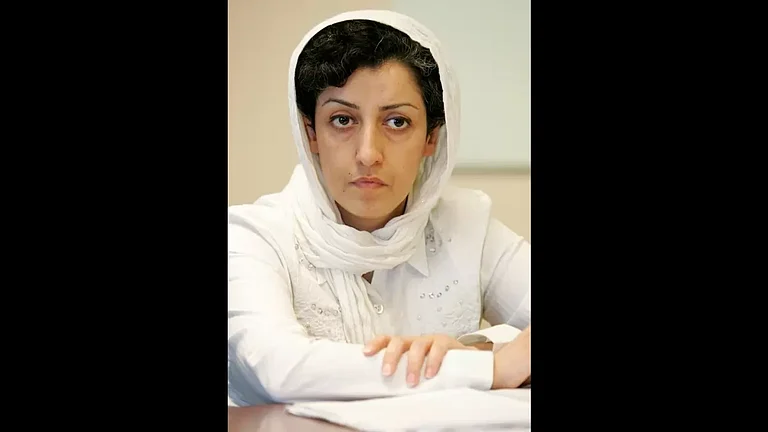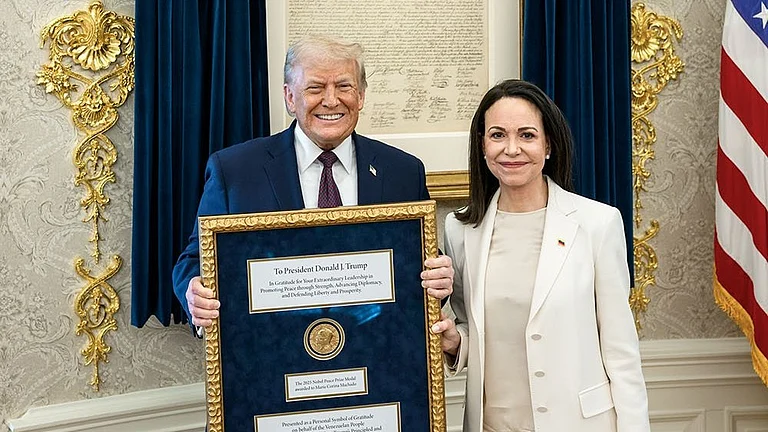László Krasznahorkai
Destruction and Sorrow beneath the Heavens: Reportage
TRANSLATED BY OTTILIE MULZET
Seagull Books
Whenever he can, Stein sits next to her and listens. Mama has an upright piano, which Stein used to play for her sometimes; she was always so deeply affected, though, that Stein stopped doing so. Instead he would tell her about his day, then get her to talk about her life. Just like now.
Mama, there’s one thing I never asked you: What was life like when you were a small child? What was everyday life like back then?
MaMa. as you know, I was born in 1934, but of course I don’t have any memories directly from that period. The first things I can remember are from the time of the Japanese occupation. The Japanese . . . (she tries to recall the word in English, the language in which they are speaking) . . . war. The whole thing was more of a decisive impression for me, rather than a memory. I might have been three years old . . . I heard the sound of a huge explosion. It was horrifyingly powerful. We lived in alley, and in my room I was really afraid. I hid underneath the bed (laughs). Otherwise . . . I recall nothing from that time.
and thus, so to speak, my life began. With that huge explo- sion. Later on, when I was a little older, I already knew about some things, I knew that the Japanese had occupied Beijing, and my feelings were . . . they were such that I felt that in my life there was nothing happy . . . nothing cheerful . . . nothing, not a single happy thing. When the Japanese occupied our country, life was not secure. The mere fact of remaining alive was not secure. nor was my father’s work. Because my father was 48 years older than me. He worked at the Shifan University,171 and he was already considered old. So we were afraid he would be dismissed. and prices were really high! at that time the Japanese just left us one single thing to eat—xiliang, millet grains. We could hardly get any rice. For the most part it was cornmeal or barley.
Unfortunately, even the grains that we got from the Japanese were ruined, they had a bad taste and a greenish colour. The Japanese gave us whatever could no longer be eaten. So the only thing we could do was to keep hens at home. They laid a fair amount of eggs. I really liked that. We hardly bought anything, we had no money. So we ate mainly eggs. We didn’t eat the grain, but gave it to the hens. That’s how it was.
at that time, life at home was not too good. In a material sense. Because my father was the only one who earned any money. There were four of us siblings. My mother stayed at home with us. She took care of the household. My father always worked, my mother was at home, and their life was quite bitter. They were crushed by poverty in every respect. We were never allowed outside, except to go to school. and there was no place anywhere where we could have played.
What about friends? Was it possible to play with them somehow?
MaMa. We had no friends! I’m telling you that they only let us out to go to school, and there we only had lessons—of course there were no games in school, so where could there have been any friends? Later on, even when we were older, we couldn’t go to the movies. Because the Japanese soldiers went to the movies for their fun. not that we could have spent the household money on some- thing like that. We never went to the movies at all. as soon as school was over, they let us out to go home immediately. We couldn’t even stay in the courtyard because there were Japanese living next door. and, usually, the Japanese children bullied the Chinese children. They were always out there in the courtyard, and they could play. not us. If we went out when they were there, they beat us. So we couldn’t go into the courtyard unless an adult was with us. Either my mama, or the house supervisor. We were even accompanied on the way to school, I remember that. It is easy to beat a child. Because of that, there was always an adult going with us to school. Once we were inside school, there were no problems.
What were the lessons like?
MaMa. It was just an average school. I have to think a bit . . . (laughs)
. . . Oh yes . . . There was a huge entrance with a horizontal inscription above it . . . I don’t remember anything specifically. What was written there . . . Maybe it was something like ‘Li Yi Lian Chi’,172 a quote from Confucius, it was a quote from him, that is certain . . . Then there was the classroom. Well, that was pretty basic. Little tables, little chairs, a blackboard on the wall, the teacher wrote on it in chalk. at the beginning of the lesson, when the teacher came in, the class steward yelled: Stand up! Then: Sit down! During the lessons, we sat with our hands behind our backs.
Were the girls and boys together?
MaMa. Yes, usually they were together.
How many grades were there in primarily school?
MaMa. I went to school for six years from the time I was five, until 1945. Then the Japanese surrendered—15 august. The surren- der. Then I began middle school.
Wait, let’s not go so fast! Mama, what did you learn in primary school?
MaMa. Poetry recitation, the national language, mathematics, from Grade Three there was also Japanese . . . as for the rest, now . . .
How did a class proceed?
MaMa. . . . and a little later . . . we had history, geography . . . So how did a class proceed?
MaMa. We were taught from textbooks. The teacher explained. We wrote it down. But when the teacher explained, there was nothing for us to do, we had to pay attention, our hands behind our backs. We weren’t allowed to fidget, to whisper, nothing like that... (laughs) ...
Mama, I don’t understand how it worked...
MaMa. Well, in Grade One the teacher wrote something on the blackboard, then we read it aloud, all of us. The teacher wrote, we read aloud. For example: Tian liang le—no, that wasn’t it. . . (concentrates)... For example: Tian ping te yi an tian... In the old days, there was a kind of pinyin, it was called zhuyin zimu. We had to somehow write down the pronunciation until we knew Chinese properly, in fact it’s the same today...
Extracted from - Destruction and Sorrow beneath the Heavens by Laszlo Krasznahorkai, translated by Ottilie Mulzet with special permission from Seagull Books.























